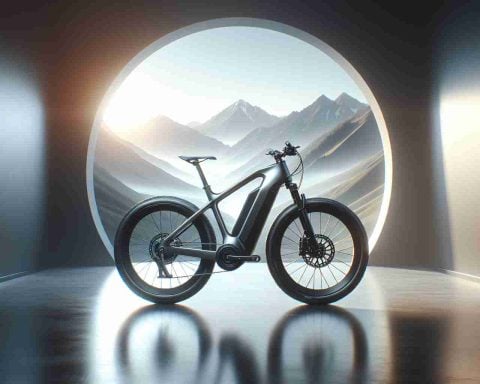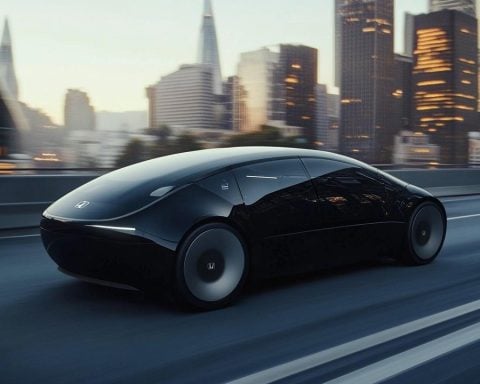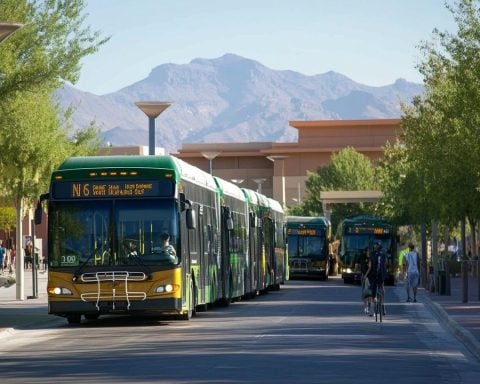A recent survey conducted among more than 2,000 residents of Park City and the Snyderville Basin has revealed a majority in favor of implementing speed limits for biking on popular pathways such as the Poison Creek and McLeod Creek trails. While the exact numbers vary, the consensus seems to be in favor of a speed limit ranging from 12 to 15 mph.
One of the concerns raised by Park City Councilmember Bill Ciraco is the behavior of certain users, specifically teenagers on throttled e-bikes. These individuals often exhibit reckless behavior, speeding down the paths without any regard for others. Ciraco suggested that the problem may not necessarily lie with the e-bikes themselves, but rather the individuals operating them irresponsibly. This sentiment was echoed by Park City Trails and Open Space Manager Heinrich Deters, who believes that addressing negative user behavior through speed limits and increased signage could be an effective approach.
Enforcing speed limits, however, poses a challenge for the Park City Police Department. Police Chief Wade Carpenter mentioned that it would require a significant allocation of resources, and officers would likely focus on dealing with cases of excessive and reckless behavior rather than enforcing speed limits universally.
The survey also highlighted concerns about safety, with approximately 17% of respondents expressing feelings of unease due to the presence of e-bikes on the pathways. In response to this, more than half of those surveyed supported Park City’s current ordinance, which restricts the use of e-mountain bikes on natural surface singletrack trails to individuals aged 65 and older or those with mobility disabilities.
As a potential solution, Councilmember Jeremy Rubell proposed the idea of a pilot program that designates specific trails exclusively for e-bike use. Park City Trails and Open Space Manager Deters recommended considering the lower Deer Valley area for this purpose, as it is already separated from the broader Park City trail network. Furthermore, it could connect to Clark Ranch and Wasatch County trails, which currently allow e-bikes.
The council has decided to take more time to thoroughly evaluate the options and will defer any decisions regarding e-bike regulations until late May or early June. Meanwhile, the complete results of the e-bike survey can be found here, providing valuable insights into the opinions and perspectives of Park City and Snyderville Basin residents.
The discussion on implementing speed limits for biking on popular pathways in Park City and the Snyderville Basin reflects a growing concern about safety and user behavior. The survey conducted among residents revealed a majority in favor of speed limits ranging from 12 to 15 mph. However, one of the main issues raised by Councilmember Bill Ciraco is the behavior of certain users, particularly teenagers on throttled e-bikes, who exhibit reckless behavior without regard for others.
Park City Trails and Open Space Manager Heinrich Deters shares the belief that addressing negative user behavior through speed limits and increased signage could be an effective approach. However, enforcing speed limits poses a challenge for the Park City Police Department, as it would require significant resources. Police Chief Wade Carpenter suggests that officers may prioritize addressing cases of excessive and reckless behavior rather than enforcing speed limits universally.
The survey also highlighted concerns about safety, with approximately 17% of respondents expressing unease due to the presence of e-bikes on the pathways. In response to this, more than half of those surveyed support Park City’s current ordinance, which restricts the use of e-mountain bikes on natural surface singletrack trails to individuals aged 65 and older or those with mobility disabilities.
To explore potential solutions, Councilmember Jeremy Rubell proposed the idea of a pilot program that designates specific trails exclusively for e-bike use. Park City Trails and Open Space Manager Deters recommends considering the lower Deer Valley area for this purpose, as it is separated from the broader trail network and could connect to Clark Ranch and Wasatch County trails, which currently allow e-bikes.
The council has decided to take more time to thoroughly evaluate the options and will defer any decisions regarding e-bike regulations until late May or early June. The complete results of the e-bike survey can be found here, providing valuable insights into the opinions and perspectives of Park City and Snyderville Basin residents.
As for the industry and market forecasts related to e-bikes, the electric bicycle industry has seen significant growth in recent years. According to a report by Market Research Future, the global e-bike market is projected to reach a value of $38.6 billion by 2025, with a compound annual growth rate (CAGR) of 6.39% during the forecast period of 2019-2025. The increasing adoption of e-bikes as a sustainable and eco-friendly mode of transportation, coupled with advancements in battery technology and government initiatives to promote electric mobility, are driving the market growth.
However, the industry also faces certain challenges and issues. One of the main concerns is the safety of e-bike riders, particularly when sharing pathways with pedestrians and traditional bicycles. This has led to discussions and debates regarding regulations and speed limits, as seen in the case of Park City. Ensuring the responsible use of e-bikes and addressing negative user behavior are important factors in maintaining safety and harmony among different trail users.
Additionally, the e-bike industry grapples with issues related to infrastructure and charging infrastructure. As the demand for e-bikes grows, there is a need for proper charging stations and facilities to support the charging needs of e-bike users. Local governments and urban planners play a crucial role in developing infrastructure that supports e-bike usage and encourages its adoption as a viable alternative to traditional transportation modes.
Overall, the e-bike industry is poised for continued growth, propelled by factors such as environmental concerns, government support, and advancements in technology. However, addressing safety concerns and ensuring responsible usage will be key in maximizing the benefits of e-bikes in a shared trail environment.























